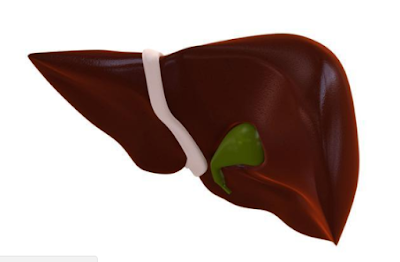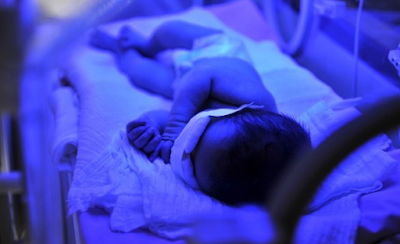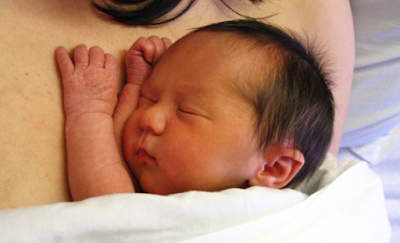Causes, Symptoms, and Treatment of High Bilirubin Levels
The Area of Health - Bilirubin is a waste product that is obtained during the process of recycling red blood cells that have been deprecated.
The spleen and liver are the two organs that are instrumental in recycling red blood cells.
 |
| Causes, Symptoms, and Treatment of High Bilirubin Levels |
Bilirubin works as an antioxidant cellular. Normal levels of bilirubin outright or conjugated in the blood is 0-0.3 mg/dL (milligrams per deciliter). While the total bilirubin levels should be between 0.3 to 1.9 mg/dL.
Increased levels of bilirubin in the urine is also an indication of health problems that require immediate medical attention.
The Cause Of The High Levels Of Bilirubin
- Blockage of the bile ducts can affect the level of bilirubin. In some cases, the narrowing of the bile duct also triggered moderate increase in bilirubin.
- Cirrhosis of the liver can affect the function of the liver, which leads to an abnormal level of bilirubin.
- In addition to cirrhosis of the liver, liver function can be influenced by a variety of other problems such as liver failure, liver cysts, etc.
- Genetic disorders of bilirubin metabolism can cause a mild increase in the bilirubin level.
- The hepatitis virus is one of the main causes of the increase in the level of bilirubin.
- Crigler Najjar syndrome or a rare disorder affecting the metabolism of bilirubin may also cause increased levels of bilirubin in the blood.
- Choledocholithiasis or the presence of gallstones in the common bile duct is one of the main causes of high bilirubin levels.
- Dublin Johnson Syndrome or an increase in conjugated bilirubin without an increase in liver enzymes can cause the levels of bilirubin exceeds normal.
- Yellow Disease is a condition when a person has excessive bilirubin in the blood.
- Liver disease caused by the use of drugs can affect liver function seriously and trigger increased levels of bilirubin.
- Abnormal hemolysis or destruction of red blood cells could be the cause of excess bilirubin in the blood.
- Different types of cancer can spread to the liver and affect liver function.
- Alcoholic hepatitis is a common cause of high levels of bilirubin in the blood.
- Tumors that affect the liver, bile duct, gallbladder or can be the cause of a buildup of bilirubin in the blood.
- Some drugs, especially antipsychotics drugs or medications that contain sex hormones and drugs used for chemotherapy can cause high bilirubin levels.
- The increase in bilirubin is generally seen when a person suffers from Gilbert's syndrome or disorder of bilirubin metabolism.
- Primary sclerosing cholangitis (bile duct progressive inflammation inside and outside the liver followed by scarring and damage to the bile duct) is responsible to the elevated levels of bilirubin.
Symptoms Of High Levels Of Bilirubin
- Loss of appetite
- Frequent fever
- Nausea, vomiting
- Abdominal swelling or pain
- Urine is yellow or brownish
- Urine has a strong scent
- Low energy levels and are often tired
- The color of pale stools or like clay
- The sensation of itching
- The skin and whites of the eyes turn yellow
Yellowish Skin is one of the main symptoms of increased levels of bilirubin in the newborn.
High bilirubin levels common in premature babies at birth.
In adults, the disorder can be a sign of serious heart disease and lead to fatigue, swelling of the ankles, diminution of muscles, ascites (fluid build-up in the abdominal cavity), mental confusion, or even coma and bleeding the intestine.
Treatment Of High Levels Of Bilirubin
- There is no required medical treatment for hepatitis a. disease usually heal by themselves.
- Gallstones and liver stones can be removed through surgery. In severe cases, liver transplant could become an option for treating liver dysfunction.
- Treatment for cancer or metastatic liver cancer depends on the severity of the condition and the patient's overall health.
- Doctors need to study the history of the patient. The abuse of alcohol or drugs that lead to liver disorders need to be advised by the doctor to plan appropriate treatment.
- Elevated levels of bilirubin can be treated with the help of home remedies, if the condition is not too serious. Consult your doctor to determine the right home remedies.
- The new baby was born with hiperbilirubinemia light does not require special treatment. In the case of moderate hiperbilirubinemia, newborns typically illuminated with lights of bilirubin to treat the condition.



Komentar
Posting Komentar